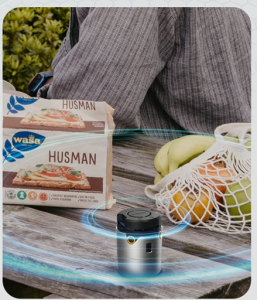Key Takeaways:
- Mosquitoes bite us because our blood has nutrients that help them lay eggs
- They can also locate people by the carbon dioxide we breathe out, body odor, and body heat
- Bug sprays and heat-based repellers work the best
- Citronella candles and bug zappers are the least effective
Why do mosquitoes bite?
As we move into summer, more and more people venture outside to enjoy the nice weather around us. Whether you’re camping, fishing, or even going on a picnic, it’s nice to enjoy the great outdoors. Unfortunately, many bugs would also agree with that statement. While it’s nice to know that the bees are out pollinating flowers or spiders are eating unwanted flies, it’s hard to appreciate mosquitos when their main goal is to bite you and leave itchy marks all over your skin.
Mosquitos bite people because our blood contains proteins and nutrients they need to make eggs. Yes, this means only female mosquitoes bite you. While mosquitoes also feed on nectar, other animals, etc., consuming blood will help a mosquito to lay eggs or, in some cases, even more eggs than usual. Seeing how humans are much bigger than a flower, it’s easy to see why mosquitos treat us like a free all-you-can-eat buffet.
How do mosquitoes locate targets?
Mosquitos locate their food by detecting carbon dioxide, skin odors, and body heat. So if you’re outside running around, building up a sweat, and breathing heavily, you’re like a giant blinking billboard advertising a free meal to them. Other factors that particularly attract mosquitos include type O blood, skin bacteria, high body heat, and pregnant women.
Four ways to repel mosquitoes
So how can you stop them from biting or just keep them away from you entirely? Below, we’ve outlined the top four kinds of insect repellers explaining how they work, and the positives and negatives of each type.
Bug Sprays
Using bug spray is a standard solution to a mosquito problem. It’s easy to apply, relatively cheap, can be found in most grocery stores, and requires reapplication to work. The way bug sprays work is that the spray helps mask the smell of the carbon dioxide you breathe out - making it harder for mosquitoes to find you. The spray also helps cover your scent and makes you smell unappealing or taste sour to bugs you try to land on your skin. However, there can be some negatives when it comes to bug spray. For any hunter, the smell of bug spray will ward off mosquitoes but may also alert you to other animals. Sprays can leave scents or even stain clothing - making it undesirable for those who wish to remain undetected. Bug sprays also come off with sweat making the user constantly reapply. Depending on how thorough you are, it is possible that you do not cover yourself evenly or miss spots, making you less protected from mosquitoes. Bug sprays are not recommended for long-term use if you have sensitive skin.


Citronella Candles
Citronella candles are commonly used in more relaxed settings like grilling in your backyard or placed on a table somewhere. As expected, their main ingredient is citronella oil which is made from a species of lemongrass. Citronella oil is a natural plant-based repellent that works on insects and is safe for humans. However, most people say that while the oil can be helpful, the added wax from the candle dilutes its potency which does not make it very effective. Even using the oil on its own or as the main ingredient in natural sprays is not as effective as regular bug spray. While the smell may be nice, there doesn’t seem to be any use for it when it comes to repelling mosquitoes.
Bug Zappers
Bug zappers are extremely effective for killing bugs. The bad thing? They don’t work on the bugs that are bothering you like mosquitos. Mosquitos are not drawn toward light sources like other insects and therefore a bug zapper only has a random chance of killing mosquitoes for you. With no way to lure mosquitoes specifically, bug zappers kill off more helpful bugs than pests.

Heat-based Repellers
One of the main reasons mosquitos are so attracted to us is because of the body heat we give off. To them, our bodies act as a locating system so when they sense a high level of heat- they immediately go there. Heat-based repellers are also considered more eco-friendly compared to bug sprays and more effective than candles or bug zappers. Most heat-based repellers are rechargeable or use batteries making them last longer than other types of repellers. They also offer more protection by encompassing the area around you so the mosquitos don’t even think about getting close to you. If you are interested in looking at any heat-based mosquito repellers, Nitecore has five models that you can find here or on our comparison chart down below.
Nitecore Mosquito Repeller Models
Recap
In summary, we know that mosquitoes bite us because our blood helps them lay eggs. The way they find us is by the carbon dioxide we breathe out, body odor, and body heat. The most common ways people combat these pesky insects are by using bug sprays, citronella candles, bug zappers, and heat-based repellers. In the end, we learned that bug zappers and citronella candles don’t work very well when it comes to mosquitos, and in some cases, can do more harm than good. The top two best ways to do this are to use bug spray or a heat-based repeller, which each comes with its positives and negatives.
Types of Repellers: | Pros: | Cons: |
Bug Sprays |
|
|
Citronella Candles |
|
|
Bug Zappers |
|
|
Heat-based Repellers |
|
|








